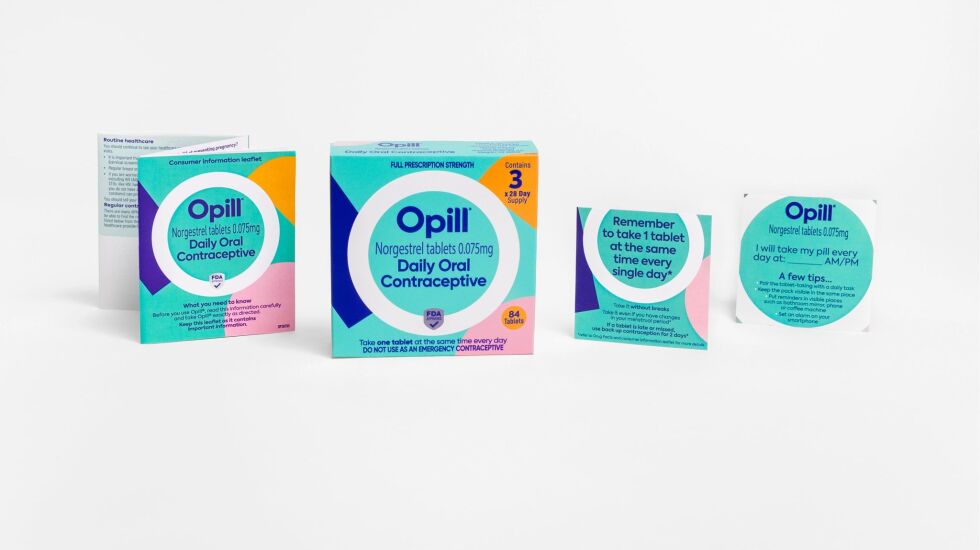
The federal Food and Drug Administration has approved Opill, the first daily oral contraceptive that will be available for sale without a prescription, but many details related to cost and insurance coverage for an over-the-counter pill still need to be sorted out.
1. Who is most likely to be interested in an over-the-counter oral contraceptive like Opill?
For people who are uninsured, the new OTC pill will let them save the cost of a visit to a health care provider for a prescription and the expense of taking time off work or getting child care.
Convenience also might be a factor if, say, you’re on vacation and there’s no in-network pharmacy nearby or you can’t get an appointment to see your doctor for a few weeks to discuss your options but don’t want to be unprotected.
2. Why this pill?
Opill — the trade name for the drug norgestrel — contains only one hormone, progestin. Most of the 60 or so contraceptive pill formulations already on the market contain estrogen and progestin.
Progestin-only pills, sometimes called mini-pills, have few contraindications, meaning there are few medical circumstances in which taking them would be ill-advised. For Opill, a key contraindication is if someone has breast cancer or a history of breast cancer.
“Since they don’t contain estrogen, they have very few and quite rare contraindications, so they’re safe and appropriate for a broader population to use to prevent pregnancy,” said Dr. Stephanie Sober, a physician and the global lead of medical affairs for women’s health for Perrigo Co., which makes the pill.
Both progestin-only pills and combination pills that contain progestin and estrogen are more than 90% effective during normal use.
3. When can you get Opill, and how much will it cost?
The company says Opill will be available in stores and online in early 2024 but has not made public how much it will charge for a monthly pack of pills.
The average monthly cost for oral contraceptives now available ranges from zero cost for people with health insurance to about $50, said Regan Clawson, senior director of health care access strategy for Planned Parenthood Federation of America.
Perrigo said it will have a consumer assistance program that allows some people to get Opill for free, but no details are yet available.
4. Do insurers have to cover the new pill?
Not necessarily. Under the federal Affordable Care Act’s preventive services guidelines, most health plans have to cover the full range of contraceptives approved by the FDA, including progestin-only oral contraceptives, without requiring any out-of-pocket spending.
But that doesn’t mean plans must cover every type of pill. Since there is more than one progestin-only pill on the market, it’s possible that Opill might not be the one your plan chooses to cover, said Mara Gandal-Powers, director of birth control access for the National Women’s Law Center.
But, if your doctor and you determine that Opill is medically the best oral contraceptive for you, health plans are required to have a process in place that permits you to get that pill without cost-sharing even if it’s not on your plan’s list of covered drugs.
5. If you have health insurance and don’t normally have to pay anything for your birth control pills, will you be able to pick up Opill off the shelf and not pay for it?
That’s the goal, advocates say. At first, though, you’ll probably need a prescription from your doctor to get Opill without paying for it — provided that your plan covers it.
Under the health law, insurers can require a prescription for oral contraceptives.
Under a recent federal directive, the government reiterated that health plans must cover, without cost-sharing, emergency contraception purchased over the counter when it is prescribed. It encouraged but did not require health plans to do so without a prescription.
Advocates are pushing the federal government to make no-cost coverage without a prescription an explicit requirement for all over-the-counter contraceptives.
KFF Health News is a national newsroom that produces in-depth journalism on health issues.







